Which Books Should You Be Buying This Week?
My round-up of the weekend's newspaper reviews May 6/7
Another long weekend, eh? What spoilt little subjects we are. I hope you’ve been having a nice time whether you have been celebrating the Coronation with a street party, or catching up with some reading. I have been trapped inside on a book writing deadline, but there’s always time for reading the book reviews.
And what have the newspapers been reviewing this week?
THE BANDIT QUEENS might not have made it to the Women’s Prize For Fiction shortlist, but according to The Sunday Times’ Culture section, it was a worthy contender for the longlist. Here’s what the reviewer had to say about it:
“A darkly comic debut THE BANDIT QUEENS by Parini Shroff portrays modern Indian village life, not as sultry pastoral but as survival of the sharpest. Geeta is the backbone of her women’s microloan group but otherwise a pariah, rumoured to have done away with her husband, an abusive drunk. Still, being a childless churel (witch) does confer some safety, at least until other put-upon village wives start craving what Geeta has.
“This mordantly humoured, pacey feminist revenge comedy succeeds in being both feelgood and gleefully nasty, tender and violent. Its complex female friendships, rural setting and singular characters are all memorably drawn… these female characters stand on their own.”
Sounds intriguing eh? You can buy THE BANDIT QUEENS here.
Another novel that sounds amazing is BIG SWISS. The protagonist, Greta, like the novel’s author Jen Beagin, is a tape transcriber for a psychotherapist and becomes obsessed with one of the voices on the tape who she knows only as ‘Big Swiss’ as she is tall and from Switzerland. The other thing Greta knows about ‘Big Swiss’ is that she’s a gynaecologist who has never had an orgasm. But her obsession spills into real life when Greta picks out her voice in a crowd and begins a passionate affair with her.
The Telegraph described BIG SWISS as ‘sharply funny’, and if you want to get ahead of the crowd it’s already being adapted by HBO with Killing Eve’s Jodie Comer starring.
“Deceit, lust and twisted power games between women.. if the drama can retain Beagin’s uncompromising observations, like a razor-edged Nora Ephron, and her daring suggestion that we might find happiness through, not despite, our darkness, Comer will be on to another hit.”
‘Like a razor-edged Nora Ephron’… *whistles* what a comparison…
It is out next week and you can buy BIG SWISS here.
Meena Kandasamy has a new poetry collection out entitled TOMORROW SOMEONE WILL ARREST YOU. I am a fan of Kandasamy and so too is The Guardian’s reviewer who described this as an “impassioned, compelling collection [that[ moves between rhythmically rich evocations of friendship, motherhood, love and sex – ‘Walk with me as we disappear into darkness / We shall lock our lips, we shall lock our thighs’ – and urgent political topics: caste prejudice, freedom of expression, racism and the oppression of women and LGBTQ+ people”… which, when you think about it is really no mean feat for slim poetry volume.
“These vital, beautiful poems burn with a radically illuminating rage.”
You can buy TOMORROW SOMEONE WILL ARREST YOU here.
The rest of our list this week is non-fiction, and we’ll start with MONSTERS: A FAN’S DILEMMA by Claire Dederer and featured in many newspaper book reviews this week.
Dederer is a journalist who wrote a piece in the Paris Review six years ago entitled What Do We Do With The Art of Monstrous Men? It is an ever-present dilemma regarding art – paintings/film/music/books – made by, I’m afraid to say it, mostly men whose personal lives range from ‘messy’ to predatory and perhaps, sometimes even sadistic.
We are often desperate to separate the man from his art so we can carry on enjoying it, and from reading the reviews this is what Dederer grapples with in MONSTERS examining, among others, the work and lives of Woody Allen, Roman Polanski and Picasso.
Kathleen Stock reviewed MONSTERS in The Times and Rachel Cooke in The Observer. Cooke suggests what lets down Dederer’s investigation is her need to ‘be liked’ by the young and ‘woke’ crowd who may, in decades to come, find fault in her own work and so she approaches her own exercise with some trepidation. It was with a similar ‘trepidation’ that Kathleen Stock read this book, but found it an engaging read: “Boiled down, what Dederer feels for the films directed by her favourite monster Roman Polanski, is love… ultimately, she urges us not to feel ashamed of loving good works by bad people. Equally though, unlike the ‘new critics’ of the mid-20th century, instructing their readers to disregard external factors and to focus only on form, she does not pretend it is easy to carve a clear line between an author’s biography and their work.”
Interestingly, Dederer does find some female artists to examine, but with the exception of Valerie Solanas, she focuses on those who were deemed not to be ‘good mothers’ – Doris Lessing, Muriel Spark, and Sylvia Plath – which is a little different to being ‘bad people’ and leans heavily on society’s idea of how a mother should be.
Anyway, I think this book sounds fascinating, and if you do too, you can buy MONSTERS here.
Sylvia Plath features again in this next book, along with eight other female writers. A review of A LIFE OF ONE’S OWN: NINE WOMEN WRITERS BEGIN AGAIN by Joanna Biggs appeared in The Observer’s New Review and it’s gone straight to the top of my wishlist: “Feminist critic Joanna Biggs was 34 when her marriage fell apart. It granted her the freedom she’d sought and yet she felt increasingly perplexed as she tried to envisage how the rest of her life might look. Edging onwards through the loss of her mother to Alzheimer’s, depression and a move from London to New York, she turned her guidance to nine authors whom she loved in her youth, among them George Eliot, Sylvia Plath and Toni Morrison. The resulting memoir is acute and tender, it’s pages alive with discover and desire.”
You can buy A LIFE OF ONE’S OWN here.
I could write so much more this week as there are so many interesting books out but I’m going to end with just two more non-fiction titles which I’ll try to keep brief. First up, THE POWER OF TREES by Peter Wohlleben, a German forester who wants to impress on us that trees are so much more than just ‘carbon sinks’.
“Although the main thrust of the book is about the interplay between forests and the climate emergency, there are some fascinating detours along the way,” writes Rohan Silva, reviewing. “I never knew, for example, that some trees can identify which little seedlings growing around them are their own offspring, and use their roots to feed their ‘kids’ with a sugary solution.”
I don’t know about you, but this review had me sold on that paragraph alone. If you feel the same way, and you like trees, you can buy THE POWER OF TREES here.
And finally, about a year ago I gave up what I’ve since realised is ‘ultra processed food’. I didn’t do it deliberately really, I just realised it was making me feel really ill and slowly started cutting things out of my diet that I discovered over time fitted into this category, and today’s final book, ULTRA-PROCESSED PEOPLE by Chris Van Tulleken will tell you why. In fact, The Sunday Times’ Culture section says ‘this book will change the way you eat’. A big promise, but if my experience is anything to go by, it will deliver a thousand fold (I have lost a stone or more in weight, my skin, energy levels, sleep, mood is all improved).
“On average in Britain we now get 60 per cent of our calories from ultra-processed food. It includes not just the takeaways and ready meals we eat in ever-increasing quantities, but also our breakfast cereal, the cheap loaves of bread we buy at the supermarket, the ice cream in our freezers, the sugar-free yoghurt in our fridges.”
Van Tulleken believes the synthetic ingredients in this ultra-processed food hijacks our appetites and hacks our reward system meaning we crave more of the stuff that does us the most harm. To prove this he stuck to a diet of 80 per cent ultra-processed food with shocking results that even a brain scan couldn’t argue with.
This is not a weightloss book, Van Tulleken puts it thus: “I feel strongly that to make choices we all need accurate information about the possible risks of our food, and that we should be less exposed to aggressive, often misleading marketing.”
That starts with getting yourself an education in your diet which you can do by way of ULTRA-PROCESSED PEOPLE and you can buy it here.
Right, that’s your lot this week. I better crack on with the book I’m writing. I hope some of these books have given you… food for thought. Boom, tssh!
Until next week!
• There are various ways that you can support THE BOOK ROOM while I wait to find a place to reopen my physical shop. Firstly, you can buy a gift subscription for £5 a month, which not only shows your appreciation of my writing, but grants you 10% off purchases in my online shop with your own unique discount code.
You can also order from THE BOOK ROOM, you might not find something you want here in this newsletter, or even in the online shop itself, but you can send me a CUSTOM ORDER and I can usually get any book to you within 48 hours.
You also might be interested in joining one of THE BOOK ROOM’S WRITING RETREATS. Places are booking up on our next three author-led retreats and I’m thrilled that we are hosting incredible authors like Victoria Smith, Jennifer Saint and Monique Roffey. Find out more about each retreat and book here.
And if you haven’t got any money and you still want to support, then sharing this newsletter on your social media accounts might just persuade some others to sign up as subscribers or buy a book themselves!




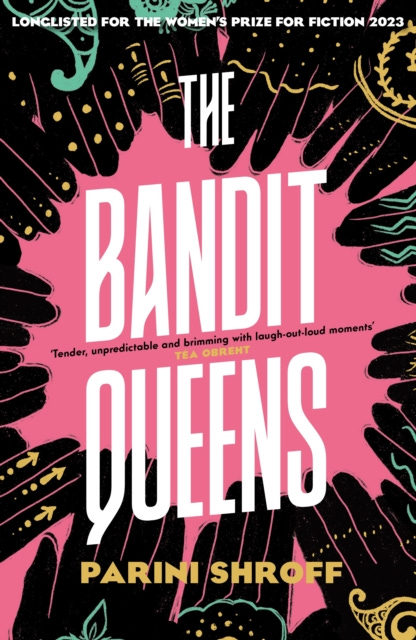
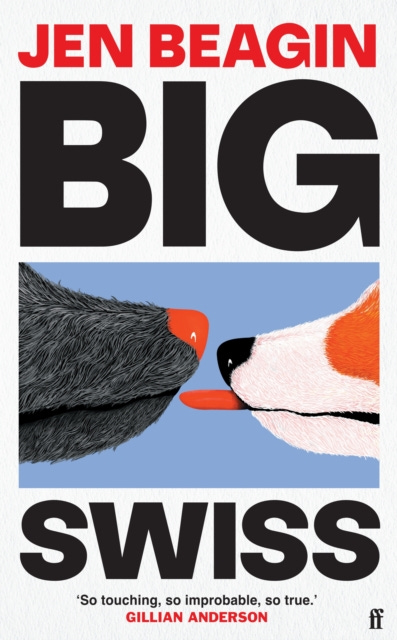
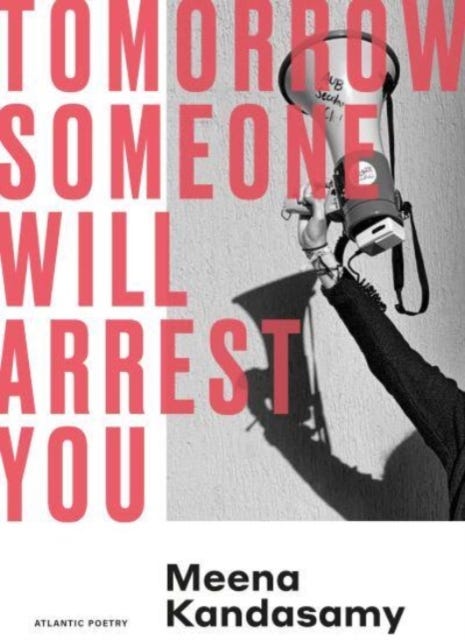
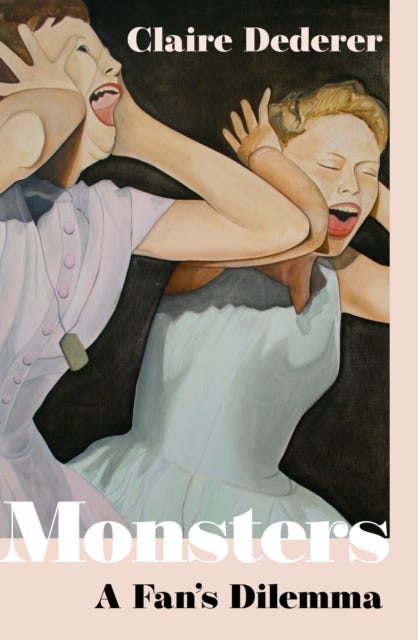
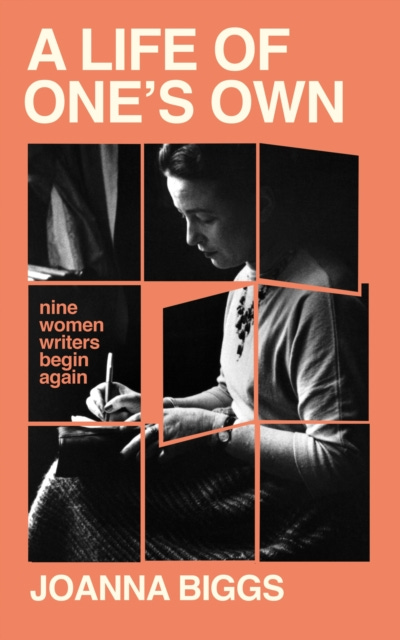
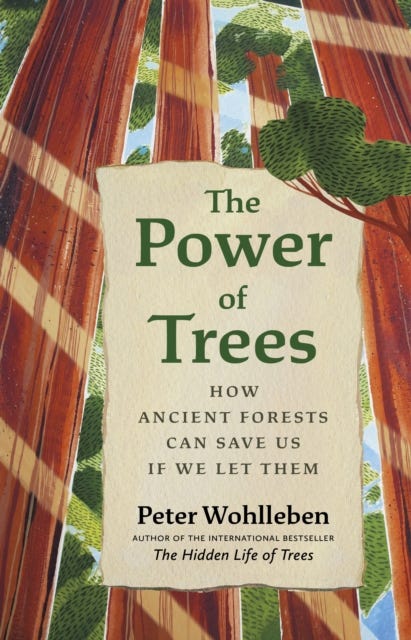
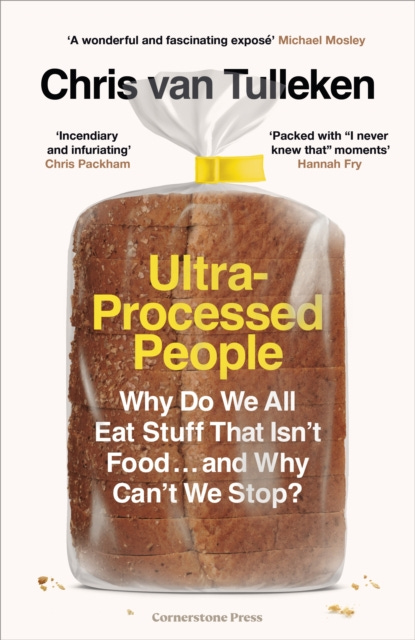
I loved The Bandit Queens - a real ‘laugh out loud’ read. Highly recommend. I’m intrigued by A Life of One’s Own - I think I may order this one out of today’s selection - last year I read a brilliant similar book ‘The Baby on the Fire Escape’ by Julie Phillips - this is a fantastic insight into various artists and writers who were also mothers - I particularly resonated with Ursula Le Guin’s attitude - Julie Phillips is currently writing an official biography of Le Guin. As for The Power of Trees - I loved his first book The Hidden Life of Trees but since them his books have all seemed the same. Instead personally I’d recommend Suzanne Simard’s Finding the Mother Tree - this is her autobiography - she is the person - the woman who discovered the ‘wood wide web’ ie the mycelium under our forests. Many thanks for your views.